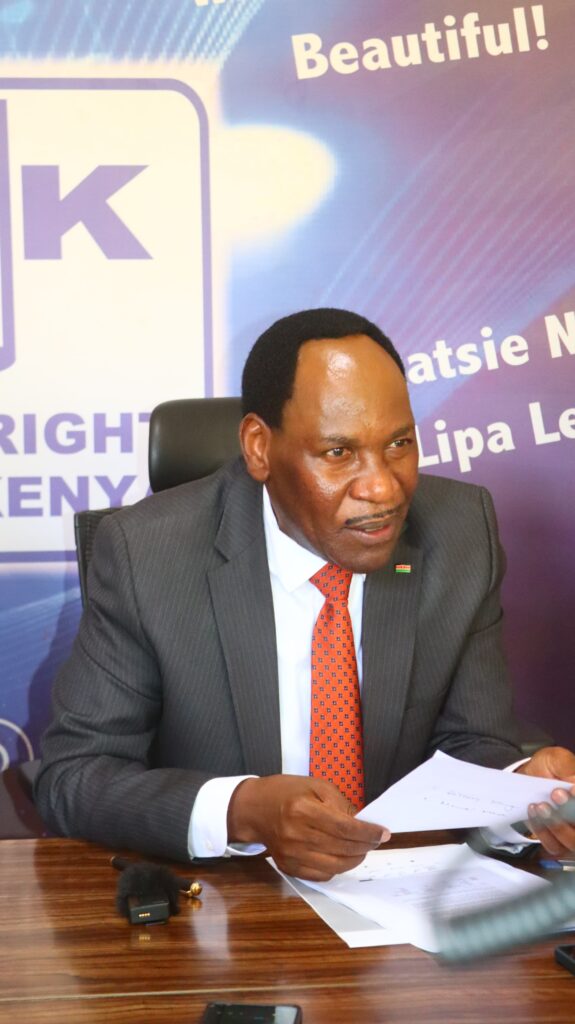The Music Copyright Society of Kenya (MCSK) has responded to allegations from the Kenya Copyright Board (KECOBO) regarding the distribution of royalties to its 16,000 members, emphasizing compliance with the law and MCSK distribution rules.
According to MCSK, the distribution process began on January 25, 2024, and will continue until March 29, 2024, following criteria outlined in a public notice published in national dailies on January 19, 2024. Alfred Mutua, speaking to journalists, stated that the notice was also shared on social media platforms to keep members informed.
Mutua highlighted that the three-month distribution period allows members to update their music catalogues and personal information such as bank accounts, M-Pesa numbers, and KRA Pins. He emphasized positive feedback from members and transparency in the distribution process.
MCSK expressed concern over circulating documents questioning the distribution amounts and refuted allegations of misappropriation. Mutua questioned why only MCSK faced scrutiny when other CMOs had not distributed royalties, emphasizing equal use of the system imposed by the regulator.
MCSK disputed KECOBO’s claim based on the “70% rule,” which they argue is not supported by copyright laws or regulations. They noted past challenges with low royalties and highlighted improvements in the current distribution process.
MCSK vowed to take legal action against KECOBO and reiterated their commitment to resist pressure from corrupt entities seeking to exploit artists. They called for police enforcement to collect over Ksh2B owed by users of copyrighted musical works.
MCSK emphasized their status as a private entity, separate from government funding or interference. They questioned the government’s involvement in their operations and advocated for a conducive environment for private companies to thrive.

